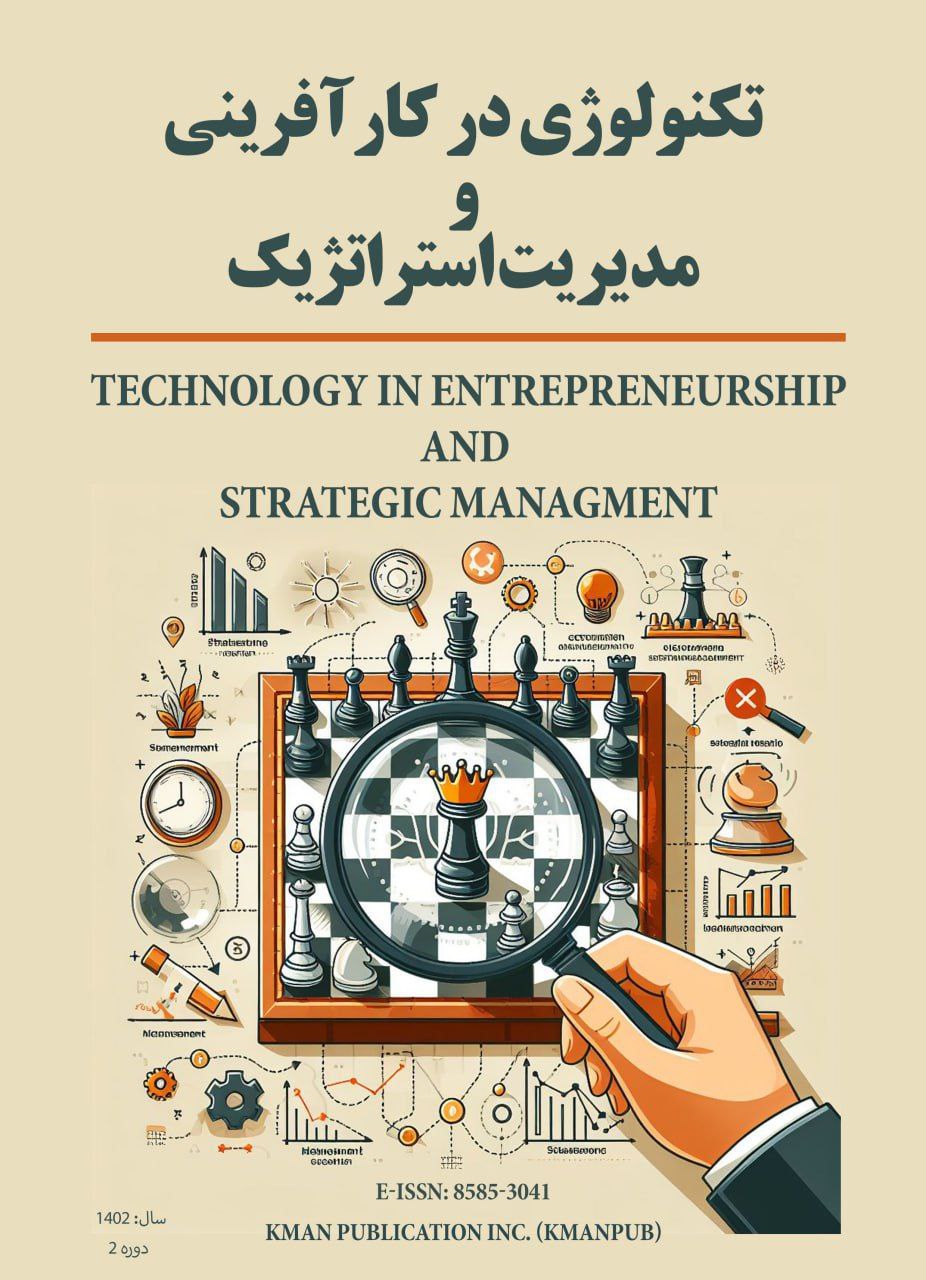A Proposed Model for Implementing Knowledge Management Training in Automotive After-Sales Service Companies
Keywords:
Training, Model, Knowledge Management, Needs Assessment, Culture, Structure, TechnologyAbstract
The present study aims to propose a model for knowledge management training in ISACO automotive after-sales service companies. The research method is applied in terms of objectives and exploratory mixed-method (qualitative-quantitative) in terms of data. In the qualitative dimension, it is a self-emerging grounded theory, and in the quantitative dimension, it is a cross-sectional survey. The research field includes several experts (individuals introduced by professors, holding a PhD and conducting research in the field of knowledge management) in this domain, and in the quantitative section, all company employees (holding a bachelor's degree or higher and familiar with knowledge management) totaling 140 people. The sampling method in the qualitative section was purposive and snowball sampling, with 18 experts selected, reaching theoretical saturation at the 15th expert. In the quantitative section, based on the Morgan formula for sample size determination, 106 people were selected as the sample size. In the present study, after open and axial coding, the measurement tool was developed in the form of a questionnaire, which was sent to the experts for selective coding and validation. Consequently, a researcher-made questionnaire was designed and distributed randomly among the stratified sample. The collected data were analyzed using descriptive and inferential statistics, and finally, a model consisting of 7 dimensions, 26 components, and 138 indicators was identified. The identified dimensions, within a homogeneous structure, support the constructs of the proposed knowledge management training model in automotive after-sales service companies. According to this model, companies in this industry can progress toward the enhancement of knowledge management training. The proposed model can be used as a framework for organizations to define improvement and development actions.
Downloads
References
Attia, A., & Eldin, I. E. (2018). Provide models for implementing knowledge management in project-oriented companies at the
national level. Journal of Knowledge Management.
ply_chain_management_practices_in_the_Saudi_food_industry
Bagherizi, S. (2021). Investigating the Impact of Knowledge Management on Organizational Entrepreneurship. . New Research
Approaches in Management Sciences Spring, 24(43-67). https://www.noormags.ir/view/fa/articlepage/1768132
Irajpour, A. R., Yazdanian, H., & Vahrami, T. (2015). Quantitative evaluation of the impact of human resource strategies on
the overall strategy of the organization (Case study: Saipa factory). Karafan Quarterly Research Journal, 15(43), 85-98.
https://karafan.tvu.ac.ir/article_100515_8f9bbbf117a1bfb1d4beadf340c99a61.pdf?lang=en
Karimi, M., Heidarinejad, S., & Alizadeh, Y. (2016). Development of a model of succession management based on knowledge
management in the Ministry of Sports and Youth based on data theory. Journal of Sports Management Studies(59-84).
https://smrj.ssrc.ac.ir/article_1727_d0dac08e63aca3872a7e5620a06525bf.pdf?lang=en
Lotfi Jalal Abadi, M., Farhadi, A., & Saltanat Ravaei, M. (2019). Designing a skills-based model for technical and professional
students using data-based theory. Karafan Quarterly Research Journal, 16(46), 71-100.
https://karafan.tvu.ac.ir/article_105314_656e1172627ad1a5e85f6d10c87a10fa.pdf?lang=en
Mahdavi, M. (2016). Acceptance of Students Learning Management System (LMS) Using the Technology Acceptance Models
(TAM)(Case study: The Technical and Vocational University). Karafan Quarterly Scientific Journal, 13(40), 77-93.
https://karafan.tvu.ac.ir/article_100495_2b2e694b3f3027e0b48181b665125ea7.pdf?lang=en
Mohammadi, H., & Yahya Nejad, M. H. (2017). A Model for Measuring the Readiness of Government Companies in
Implementing Knowledge Management. . Scientific-Promotional Quarterly of Standard and Quality Management.
https://www.agahbookshop.com/p-24773--.aspx
Rashid Alipour, Z., Ansari, M., Javadin, S. R. . (2019). Study and training of the effect of knowledge management
implementation on organizational performance. Quarterly Journal of Organizational Knowledge Strategy.
https://jkm.ihu.ac.ir/article_204990.html
Thite, M. (2004). Strategic positioning of HRM in knowledge‐based organizations. The Learning Organization.
Walton, J. S., & Guarisco, G. (2007). Structural issues and knowledge management in transnational education partnerships.
Journal of European Industrial Training. https://www.emerald.com/insight/content/doi/10.1108/09696470410515715
Zaim, H., Muhammed, S., & Tarim, M. (2019). Relationship between knowledge management processes and performance:
critical role of knowledge utilization in organizations. Knowledge Management Research & Practice, 17(1), 24-38.
Downloads
Published
Submitted
Revised
Accepted
Issue
Section
License
Copyright (c) -1 Journal of Technology in Entrepreneurship and Strategic Management (JTESM)

This work is licensed under a Creative Commons Attribution-NonCommercial 4.0 International License.











